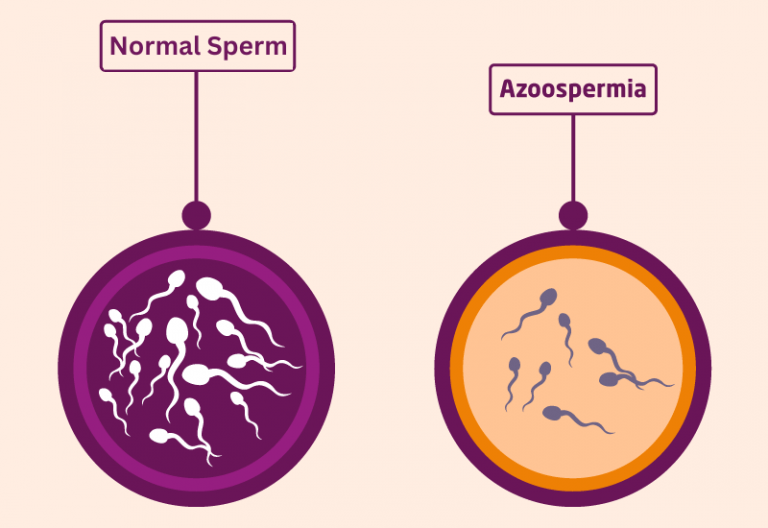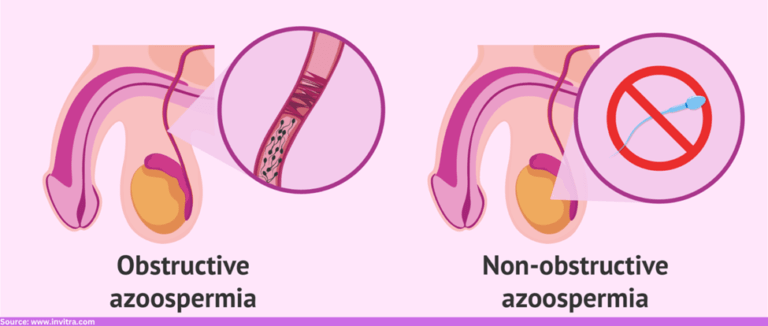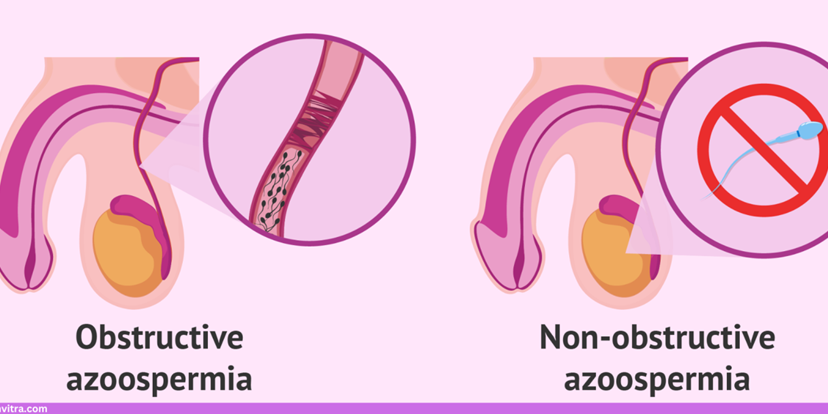Azoospermia is a deeply emotional and often misunderstood condition that can take a toll on a man’s sense of masculinity and self-worth. Whether it is obstructive or non-obstructive azoospermia, it can be a heart-wrenching experience for the man and his partner. It is not uncommon for men to feel a sense of shame or failure when they struggle to father a child, even though infertility is often out of their control.
“Azoospermia can be a challenging and emotional experience for men, but there is hope and help available,” says Dr. Hrishikesh Pai, a renowned fertility specialist in India.
It is important to remember that you are not alone, and there are options available to help you build the family you desire. So, if you or your partner are struggling with male infertility, know that hope and support are available.
In this blog, we explore the causes and symptoms of obstructive and non-obstructive azoospermia and treatment options for men with this condition. Whether you are a man struggling with fertility or a partner looking to understand and support your loved one, this blog has the information you need.

Understanding azoospermia
Azoospermia is a condition that affects male fertility and is characterized by the absence of sperm in a man’s ejaculate.
There are two main types of azoospermia:
- obstructive
- non-obstructive
“Understanding the difference between obstructive and non-obstructive azoospermia can help determine the best course of treatment,” says Dr. Hrishikesh Pai, a proficient IVF doctor in Mumbai.
Obstructive azoospermia
Obstructive azoospermia occurs when a blockage in the male reproductive tract prevents sperm from being ejaculated. This blockage can be located in the epididymis, vas deferens, or ejaculatory ducts.
Obstructive azoospermia – Causes
Common causes of obstructive azoospermia include:
- Surgery: Previous surgery, such as a vasectomy or hernia repair, can cause scarring that can lead to obstructive azoospermia.
- Injury: Trauma to the reproductive system, such as a sports injury or car accident.
- Congenital abnormalities: Being born with abnormalities in the reproductive system.
- Infection: Infections, such as sexually transmitted infections or infections caused by inflammation.
- Tumors: Tumors in the reproductive system.
Fertility specialist Dr. Hrishikesh Pai states, “The specific cause of obstructive azoospermia may not always be clear, and further testing may be needed to determine the cause of the blockage.”
Obstructive azoospermia – Symptoms
The obstructive azoospermia symptoms may include:

- Pain during ejaculation due to the blockage in the reproductive tract
- Swelling in the testicles due to the accumulation of sperm behind the blockage
- Decrease in the volume of ejaculate due to the lack of sperm being produced and released
- Fertility problems due to low sperm production
Specific symptoms of obstructive azoospermia may vary from person to person, and not all men with this condition will experience the same symptoms.
If you are experiencing any of these symptoms, please speak to the fertility expert, Dr. Hrishikesh Pai, for proper diagnosis and treatment.
Obstructive azoospermia – Diagnosis
Diagnosing obstructive azoospermia typically involves:
- physical examination
- sperm analysis
- imaging tests such as ultrasound or MRI
Obstructive azoospermia – Treatment
Obstructive azoospermia treatment may include:
- surgery to repair or remove the blockage
- IVF (in vitro fertilization)
- ICSI (intracytoplasmic sperm injection)
Non-obstructive azoospermia
Non-obstructive azoospermia occurs when there is no blockage in the male reproductive tract, but the testicles are not producing sperm.
Non-obstructive azoospermia – Causes
The specific cause of the problem may vary, but common causes of non-obstructive azoospermia include:
- Hormonal imbalance: Hormonal imbalances, such as low testosterone levels, can disrupt sperm production and lead to non-obstructive azoospermia.
- Genetic defects: Certain genetic defects, such as chromosomal abnormalities, can cause problems with sperm production.
- Infection: Infections, such as mumps or sexually transmitted infections, can damage the testicles and disrupt sperm production.
- Cancer treatment: Chemotherapy and radiation therapy for cancer can damage the testicles and disrupt sperm production.
- Environmental factors: Exposure to certain chemicals or toxins, such as pesticides or heavy metals, can disrupt sperm production.
As with obstructive azoospermia, further testing may be needed to determine the specific cause of the problem.
Non-obstructive azoospermia – Symptoms
The non-obstructive azoospermia symptoms may include:
- Decrease in sexual desire due to hormonal imbalances or other underlying causes of the condition
- Difficulty maintaining an erection
- Decrease in the volume of ejaculate due to the lack of sperm being produced and released
- Fertility problems due to low sperm production
If you are experiencing any of these symptoms, please get in touch with fertility specialist Dr. Hrishikesh Pai for a proper diagnosis and treatment.

Non-obstructive azoospermia – Diagnosis
Non-obstructive azoospermia is typically diagnosed through a combination of:
- physical examination
- sperm analysis
- blood tests can be used to check your hormone levels
And in some cases, additional tests may include:
- imaging tests such as ultrasound or MRI
- genetic testing to look for chromosomal abnormalities
If you are experiencing symptoms of non-obstructive azoospermia or having trouble conceiving, please consult a highly-skilled fertility expert like Dr. Hrishikesh Pai for suitable treatment options.
Non-obstructive azoospermia – Treatment
Non-obstructive azoospermia treatment may include:
- Hormone therapy to stimulate sperm production
- MicroTESE (testicular sperm extraction)
- IVF (in vitro fertilization)
- ICSI (intracytoplasmic sperm injection)
- MicroTESE, a relatively new treatment for non-obstructive azoospermia, is used to retrieve sperm from the testicles for use in assisted reproduction like IVF and ICSI.
If you or your partner are struggling with fertility, please do not hesitate to reach out to an expert fertility specialist like Dr. Pai for guidance and support.
Conclusion

Azoospermia is one of the conditions which cause male infertility. It can be very frustrating and disheartening for men, making them feel less manly and causing low self-esteem.
However, men and their partners must remember that azoospermia is not necessarily permanent. In some cases, treatment can help restore fertility, and there are many options available for men and couples seeking to have a family.
With the right support and care, you can overcome azoospermia and achieve your dream of having a family.
If you or a loved one is considering getting azoospermia treatment in India, please speak with Dr. Hrishikesh Pai. With 35+ years of experience, Dr. Pai is one of the preferred fertility experts for those who are seeking infertility treatment in Mumbai.
FAQ
Q. How long does it take to treat low sperm count?
A. The length of time it takes to treat low sperm count (also known as oligospermia) can vary depending on the underlying cause.
In some cases, lifestyle changes or medications may be effective in improving sperm production and increasing sperm count. In other cases, more aggressive treatment, such as surgery or assisted reproductive techniques, may be necessary.
Working with a healthcare provider to determine the best treatment for your situation is essential.
Q. Can non-obstructive azoospermia be cured?
A. With the exception of individuals with subsequent testicular failure, there is currently no medication that can restore sperm cell development in most NOA patients.
The only option left for the impacted couples is to use ICSI to directly remove spermatozoa from the testicles to become pregnant without a donor.

